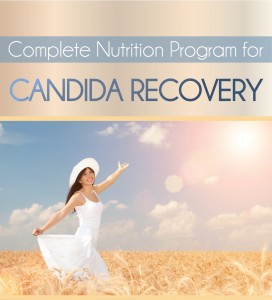First, I have to say that we need to look at what “weight loss” really is. Ultimately, what we want is to be at a healthy FAT PERCENTAGE, and rid the body of toxins. And those are measurements that cannot be done by a scale.
Women in particular have been accustomed for much of their lives to be slaves to a scale. If it’s a good number, they feel great about themselves. If it’s too high or too low in their mind, then they are feeling bad and defeated. That singular small machine has had the power to make or break the day of millions of women.
Truly, I believe people should throw their scales away. I know most people won’t do that because it is scary. But just for a moment, imagine what indigenous women living in a Peruvian rainforest right now would say to those of us Westerners whose lives are either up or down based on a number on a scale. My guess is that they would find that a very crazy thing. It can be helpful to get some perspective.
But even if you can’t throw away your scale, at least commit to weighing yourself only once a week — or better yet — once a month.
Other than obesity or extreme underweight, science has shown us that weight on a scale does not indicate the health of your body. Your weight fluctuates on the basis of water retention, exercise, hormones, toxins and many other factors.
For example, if you begin an exercise program, did you know you will usually gain between 2 and 4 pounds within the first week? That’s not muscle. You can’t build muscle that quickly. But your body will immediately hold on to extra water, because it needs the water to flush out lactic acid and deal with the metabolic processes that occur when we exercise.
Here are a few considerations for you to examine:
1. EVERYONE will show lower numbers on a scale during a juice fast. When you are giving your body a break and you have removed solid food from the equation, your body releases water IMMEDIATELY. This is because digestion of food requires extra water for the process (just like exercise). Once your body realizes it is not being asked to digest food, it dumps what is extra, and that is always water. So the first pounds you lose are water weight. So even if you are very thin when you start a fast, your body will do an efficient job of letting go of water that it does not need at this time.
2. You will lose weight, and some of it will come back immediately after you begin solids. The weight that comes back right after a fast is not fat. You can’t lose fat in one day, and you certainly can’t gain it back in one day either. These quick fluctuations are fluid loss and gain.
3. You will lose weight in the form of toxins. If you have been eating wheat, dairy, alcohol, lots of grains, refined sugar, meat or processed foods prior to the fast, you will lose a significant amount of toxins and that will show up as weight on the scale. Whether you are ideal weight or overweight.
People who eat super clean high raw or all raw diets for a while will lose only some toxins and very little weight on the scale.
The main point is that you don’t want toxins stored in fat cells to remain in your body — whether you are “overweight” or not.
4. If you do have a fair amount of weight to lose, you are likely to lose more actual FAT than other people during a fast. And what is great about that, is that if you lose 12 pounds on a fast, and gain 4 back, the 4 will be due to a re-stabilization of fluid balance.
If you continue to eat a CLEAN plant based diet that is HIGH RAW and at least 50-70% of your food is in it’s uncooked state, you will continue losing weight until you reach your body’s setpoint. Remember too, that while you can force your body to go below its natural setpoint, you will always be fighting an uphill battle.
If however, after fasting, little by little you begin to allow lots of devitalized, cooked foods, dairy, wheat and meat back into your diet, and you are decreasing the amount of fresh, raw, vibrant foods — your body will become sluggish and your weight loss will stop.
But by maintaining a diet of mostly fresh, high water content foods, consumed in rather large volume (thus not starving yourself with calories below 1800) — your body and metabolism will begin to function at an optimal level as it will not be in starvation mode.
Ultimately my advice is to TRUST THE PROCESS that your body is undergoing during a fast. Your body is healing, which is wonderful. Think of all of that hard work of digestion that you have been asking your body to do for DECADES!
There is a reason fasting has been practiced for thousands of years. And there is a reason that there is a massive amount of research confirming that a fasting lifestyle (one in which you make fasting a regular part of your life) has thus far been THE ONLY SINGULAR PROVEN KEY TO LONGEVITY!










